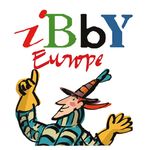Bridging worlds
Reaching out to young refugees with books and stories
A report by Ann Lazim, IBBY UK
 The first IBBY Europe conference was a positive experience with an important theme at its heart – access to books for the many refugee children escaping conflict in many parts of the world, particularly Syria at the present time. The day was a mixture of plenary presentations and opportunities to discuss ideas in smaller groups.
The first IBBY Europe conference was a positive experience with an important theme at its heart – access to books for the many refugee children escaping conflict in many parts of the world, particularly Syria at the present time. The day was a mixture of plenary presentations and opportunities to discuss ideas in smaller groups.
The day got off to a good start with Joseph O’Reilly’s contextualisation of the global position of refugees. Joseph is Head of Education Policy & Advocacy at Save the Children UK and among the statistics to which he drew our attention were the fact that over half of the world’s refugees are children and 6.7 million are of school age. Also that it is poorer countries that are receiving the largest number of refugees. The average time for displacement of a refugee from their country of origin is 27 years.
The following session on books and reading projects to support young refugees included authors Laila Koubaa (Belgium) and Neli Kodrič Filipič (Slovenia), publishers and originators of projects. Martin Gries from Book Pirates in Germany spoke about www.bilingual-picturebooks.org a website that tackles the lack of available bilingual picture books by uploading stories which can then be accessed in many languages using professional and volunteer translators to translate the text. Marloes Robijn talked about the VoorleesExpress Reading Project in the Netherlands. Sophie Giraud (Hélium) and Laurence Faron (Talents Hauts) described how 40 French publishers had come together to produce the book Eux, c’est nous (They are us) which has a message of welcome and solidarity for refugees.
In a session focusing on the work of libraries, Jochen Weber spoke about the International Youth Library and how they had been adapting IYL projects to meet different circumstances including working with young refugees in Munich where the library is located. The audience was excited and intrigued by the concept of the Ideas Box described by Muy-Cheng Peich of Bibliothèques Sans Frontières (Libraries Without Borders), which mean that multi-media educational and cultural spaces can be provided in remote rural areas.
After a lunch generously provided by the Bologna Book Fair, as was the use of the conference room for the day, we were brought back together by an inclusive short performance by storyteller Mariella Bertelli.
The Silent Books project initiated by IBBY Italia has been very influential, uniting national sections in nominating and sending wordless picture books for the use of children on the island of Lampedusa and for inclusion in the travelling exhibitions that have been put together as a result. Deborah Soria opened the session, speaking about the latest developments concerning the project. Cay Corneliusson told us about how the initiative had travelled to Sweden, resulting in the production of a handbook on how to work with silent books. Helen Limon an academic from the UK talked about her experience of visiting Lampedusa, making particular reference to using Marla Frazee’s wordless picture book The Farmer and the Clown.
Hasmig Chahinian and Eva Devos told us how the IBBY Europe website is being developed to include recommendations of books in the languages spoken by refugees – so far, Arabic, Dari, Farsi, Pashto and Urdu. IBBY sections were asked to bring books (mainly picture books) relating to the refugee situation and these were displayed. It was made clear that these books were ones that aimed to promote understanding among the indigenous children in countries receiving refugees rather than for those children themselves. I was happy to learn that these are going to be listed on the IBBY Europe website. Among those that caught my eye were Bestimmt wird alles gut by Kirsten Boie and Jan Birck, a dual language book in Arabic and German, The Journey by Francesca Sanna in English, El camino de Marwan by Patricia de Arias and Laura Borràs in Spanish, De la terre à la pluie by Christian Lagrange and Akim court by Claude K. Dubois in French.
Access to information about and provision of books in languages read by refugees was an issue raised throughout the day and was something that we talked about in the discussion group in which I participated. We thought it would be good to gather information in one place about how to get hold of existing books via international booksellers and online book selling. Print on demand could be a possible partial solution as an alternative to shipping books long distances.
We talked about providing a marketplace for ideas and having platform to put up information about different initiatives so as to share and not duplicate basic information and that the IBBY Europe website could be a conduit for this information.
The discussion groups met twice during the day, giving us opportunities to build on inspiration from the talks in the plenary sessions and draw on our own experiences. Each group had participants from different countries and a variety of professions. The mix of plenary sessions and smaller groups meant that the whole day was a model of collaboration not only across Europe but also globally as people from other parts of the world attending the book fair also joined us.
I’d like to thank the main organisers of the conference – Hasmig Chahinian (France), Eva Devos (Belgium), Pam Dix (UK) and Deborah Soria (Italy) for bringing us all together for such a stimulating day and look forward to continuing collaboration.
